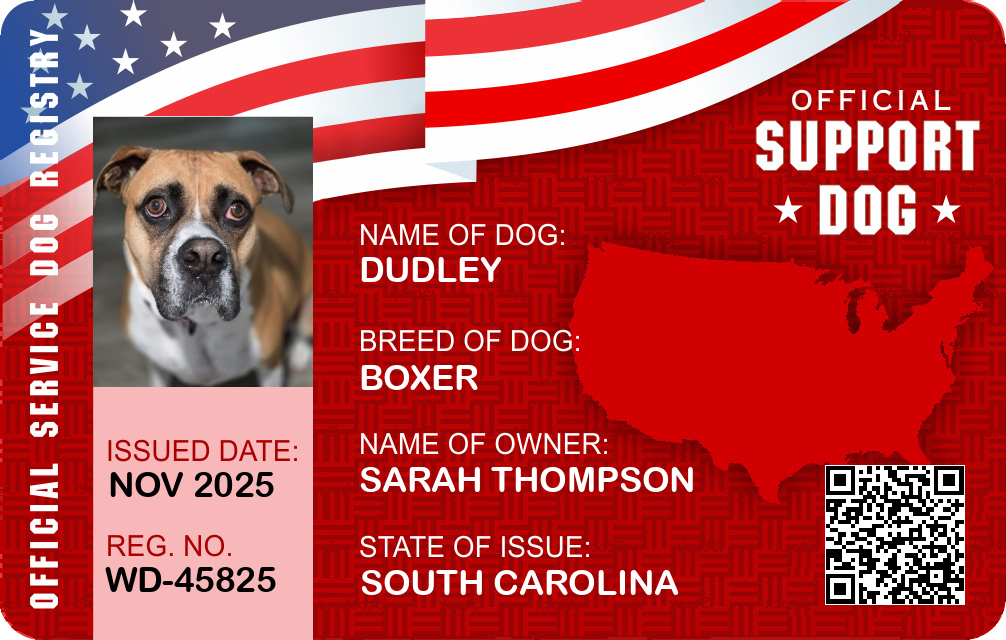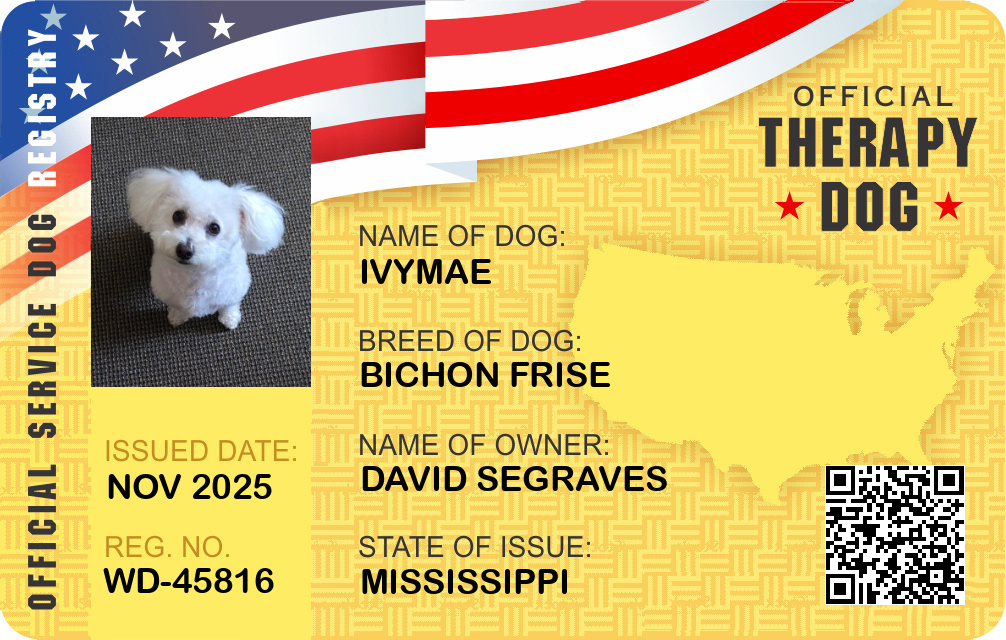Georgia Emotional Support Animal Laws

Overview of ESAs and Legal Definitions in Georgia
What is an Emotional Support Animal?
An Emotional Support Animal (ESA) is a type of assistance animal that provides comfort and support to individuals with emotional or psychological conditions. Unlike service animals, which are trained to perform specific tasks, ESAs do not require specialized training. Their primary function is to offer emotional stability and well-being to their owners. In Georgia, as in other states, the role of an ESA is recognized primarily in the context of housing and travel, where they are afforded certain protections under federal law.
How ESAs Differ from Service Animals
While both ESAs and service animals aid individuals with disabilities, their functions and legal standings differ significantly. Service animals are typically dogs that are trained to perform tasks such as guiding the blind, alerting the deaf, or calming a person with PTSD during an anxiety attack. In contrast, ESAs provide therapeutic support through companionship and do not require task-specific training. Service animals are broadly protected under laws like the Americans with Disabilities Act (ADA), which permits them access to public places; ESAs, on the other hand, do not have the same level of public access rights under federal or Georgia state law.
Key Federal Laws Affecting ESAs (e.g., FHA, ACAA)
Two principal federal laws impact the treatment of ESAs:
- Fair Housing Act (FHA): Under the FHA, individuals with ESAs are entitled to reasonable accommodation in housing situations, even in properties with no-pet policies. This law overrides local pet restrictions, ensuring that those needing emotional support can maintain their living arrangements.
- Air Carrier Access Act (ACAA): Previously, ESAs could accompany their owners in aircraft cabins under the ACAA. However, a 2020 amendment allows airlines to treat ESAs as pets, removing mandatory free cabin access, although they must still consider requests for accommodation on a case-by-case basis.
State-Specific ESA Laws in Georgia
Housing Rights and Responsibilities
In Georgia, housing providers must comply with the FHA, ensuring individuals with ESAs receive reasonable accommodation. Landlords can request documentation, typically in the form of an ESA letter from a licensed healthcare professional. However, they cannot demand prior training details or impose pet fees and deposits related to the ESA.
Housing providers can refuse accommodation if an ESA poses a direct threat to others' safety, causes substantial property damage, or places an undue financial burden on the housing provider due to its presence.
Public Access and Accommodation
Unlike service animals, ESAs in Georgia do not have the right to accompany their owners in public places such as restaurants, stores, or malls. Property owners can legally deny entry to ESAs unless the establishment's policy permits pets. The rights of ESA owners primarily apply to housing and not to public accommodations.
Transportation and Travel Rules
Georgia follows federal guidelines regarding the transportation of ESAs. With changes under the ACAA, restrictions have tightened. While ESAs are not guaranteed access to the cabin as they used to be, airlines typically treat them as standard pets. ESA owners should contact airlines in advance, provide necessary documentation, and be aware of any additional fees.
Employment and Workplace Considerations
ESAs do not have specific rights in workplace environments under Georgia state law. Employers are not required to allow ESAs in workspaces. However, employees may still request accommodation through the Americans with Disabilities Act (ADA), arguing that the presence of an ESA is a reasonable accommodation for a disability. Employers must evaluate such requests on a case-by-case basis, balancing business needs with the employee’s disability-related requirements.
Documentation, Requirements, and Processes in Georgia
ESA Letters and Who Can Issue Them
An ESA letter is crucial to accessing housing benefits. In Georgia, a valid ESA letter must be issued by a licensed mental health professional (LMHP), such as a psychologist, psychiatrist, or licensed therapist. The letter should state that the individual has a mental or emotional disability recognized in the Diagnostic and Statistical Manual of Mental Disorders (DSM) and that the ESA provides necessary support to mitigate
Register Your Dog Instantly
symptoms.Registration, Certifications, and Common Misconceptions
While official ESA registration or certification is widely advertised online, it is unnecessary and often misleading. The only legitimate requirement is an ESA letter from an authorized LMHP. Many online registries exist, but they often function as scams, charging fees for unnecessary documentation.
Landlord, Business, and Provider Verification Rules
Landlords and service providers can request to see an ESA letter to verify its legitimacy. However, they cannot ask for more information than necessary, such as medical records or details about the person's condition. They must respect the privacy and confidentiality of the ESA owner's situation.
Rights, Limitations, and Legal Risks
Rights ESA Owners Have in Georgia
Georgia residents with an ESA have the right to request reasonable accommodations in housing situations, ensuring they can live in properties regardless of no-pet policies. They also have the right to have their ESA letter respected as legitimate documentation for housing purposes as long as it meets criteria outlined by an LMHP.
Limits on ESA Protections and Common Restrictions
ESA protections do not extend to all areas. ESAs do not have public access rights similar to service animals, limiting their admittance to businesses and public spaces. Airlines and employers, while considerate, are not obliged to accommodate ESAs in all scenarios. Owners must comply with any requirements or conditions set forth, particularly with airlines or housing providers regarding behavior and public safety.
Penalties for Fraud or Misrepresentation
Presenting an ESA as a service animal or falsifying documentation constitutes fraud. In Georgia, penalties may include fines, eviction, or denial of accommodation requests. Misrepresenting an animal can undermine legitimate claims and degrade trust in ESA guidelines, emphasizing the need for compliance with pertinent laws.
Practical Guidance for ESA Owners in Georgia
How to Qualify for an ESA Legitimately
To qualify for an ESA, an individual must have an emotional or psychological condition diagnosed by an LMHP. The professional provides an ESA letter that explains the individual's need for emotional support. Selecting a qualified professional and ensuring all documentation meets legal standards are imperative steps.
How to Talk to Landlords, Airlines, and Employers
When discussing ESA accommodations, transparency is key. Provide your ESA letter promptly to landlords, and communicate any housing requirements in detail. When coordinating with airlines, ensure to reach out in advance, understanding each airline's policy and preparing documentation. For workplaces, formally request accommodation if applicable, advocating for your needs effectively and respectfully.
Tips for Avoiding Scams and Legal Problems
Be skeptical of online ESA certification offers. Authentic ESA letters require evaluation by an LMHP. Prioritize working with reputable healthcare professionals rather than online registries that guarantee quick certifications for a fee. Understanding local and federal ESA laws will help discern legitimate processes from scams.
Summary of ESA Laws in Georgia
Key Points for ESA Owners in Georgia:
- Housing Rights: Receive accommodations in housing under the FHA; landlords cannot impose pet fees or deny housing based on ESA status.
- Public Access Limitations: ESAs are not entitled to public access in establishments; public admission is at the discretion of property owners.
- Travel Guidelines: Contact airlines in advance for ESA travel policies, understanding that access is not guaranteed.
- Documentation: Require a legitimate ESA letter from an LMHP, dismissing unnecessary certifications.
- Legal Compliance: Educate yourself on rights and responsibilities to avert fraud and ensure compliance.
- Communications: Effectively articulate needs to landlords, employers, and airlines for successful accommodation requests.
- Avoid Scams: Recognize and dodge fraudulent certification schemes by relying on valid legal advice and LMHP guidance.
Ensuring awareness and understanding of emotional support animal laws will aid Georgia residents in lawfully and practically harnessing the benefits ESAs provide.











